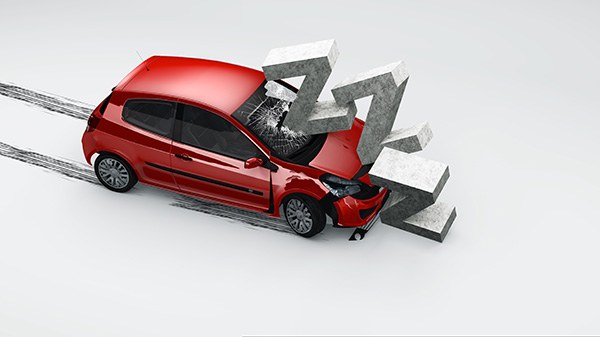
Driving is an activity that requires full attention, quick reflexes, and a clear mind. However, there are times when fatigue can sneak up on us, and the feeling of sleepiness behind the wheel becomes hard to ignore. This is not just a minor inconvenience—it's a serious danger. Sleepy driving is responsible for countless accidents every year, and it's essential to know what to do if you start feeling drowsy while driving.
Recognizing the Signs of Drowsy Driving
First things first, it's important to recognize when you're too tired to be driving safely. Often, drivers will try to push through the drowsiness, convincing themselves that they can make it just a bit further. However, this can be a fatal mistake. Some of the telltale signs that you're too tired to drive include frequent yawning, difficulty focusing, heavy eyelids, and drifting out of your lane. If you catch yourself missing exits, not remembering the last few miles you drove, or feeling irritable, these are red flags that you need to address your fatigue immediately.
Don't underestimate these signs. It's easy to think you can power through, but the reality is that if you're tired, your reaction time is slower, your attention is compromised, and your risk of being involved in an accident skyrockets.
Take a Break and Rest
One of the best things you can do when you start feeling sleepy behind the wheel is to pull over and take a break. Find a safe place to stop, such as a rest area or parking lot, and allow yourself to relax for a few minutes. Even a short nap—about 15 to 20 minutes—can make a significant difference in your alertness. Set an alarm so you don't oversleep, as naps longer than 20 minutes can leave you feeling groggy.
If a nap isn't possible, at least get out of the car and stretch your legs. Walking around for a few minutes can increase blood circulation and help wake you up. Sometimes, just getting some fresh air can be enough to refresh your mind and help you regain focus.
Caffeine as a Temporary Fix
Caffeine is often the go-to solution for many drivers feeling sleepy. Whether it's a cup of coffee, an energy drink, or a caffeinated soda, the effects of caffeine can temporarily boost your alertness. However, it's important to understand that caffeine is not a long-term solution. The effects wear off, and once they do, you may feel even more tired than before.
If you do decide to use caffeine to help stay awake, try combining it with a short nap. This tactic is sometimes referred to as a "coffee nap." Drink a cup of coffee, then immediately take a 15- to 20-minute nap. By the time you wake up, the caffeine will have started to kick in, and you'll likely feel more refreshed.
Avoiding Heavy Meals Before Driving
Another factor that can contribute to drowsiness while driving is eating a large, heavy meal. Meals high in carbohydrates, fats, and sugars can make you feel lethargic and more prone to sleepiness. If you're planning a long drive, opt for lighter meals that include lean proteins, fruits, and vegetables. These foods are less likely to cause that post-meal crash and will help keep you feeling more alert.
Stay hydrated. Dehydration can lead to fatigue, so make sure you're drinking enough water before and during your drive. However, be mindful of overhydration to the point where frequent bathroom breaks become necessary, as this can disrupt your journey and cause frustration.
Consider Your Environment
The environment inside your car can also play a role in how sleepy you feel. A warm, stuffy car can make you drowsy, while a cooler, well-ventilated space can help keep you awake. If you start feeling sleepy, try lowering the temperature, opening a window, or turning on the air conditioning. Some drivers find that listening to upbeat music or engaging in a conversation with a passenger can also help maintain alertness.
However, be cautious with distractions. While talking to a passenger can help keep you awake, it's important to stay focused on the road. Avoid overly engaging in deep conversations that take your mind off driving or anything that requires you to take your eyes off the road.
Plan Ahead to Avoid Drowsy Driving
The best way to prevent drowsy driving is to plan ahead. Make sure you're well-rested before embarking on a long trip. If you know you'll be driving late at night or for several hours, schedule regular breaks and consider sharing the driving duties with another person if possible.
It's also helpful to plan your drive during times when you're naturally more alert, such as during the day. Avoid driving during your usual sleeping hours, as your body's natural circadian rhythm will make you more prone to sleepiness during these times.
Stay safe and alert on the road! Visit Chahel Automotive for a comprehensive vehicle check-up. We'll help you stay focused on driving by ensuring your car runs smoothly and reliably.